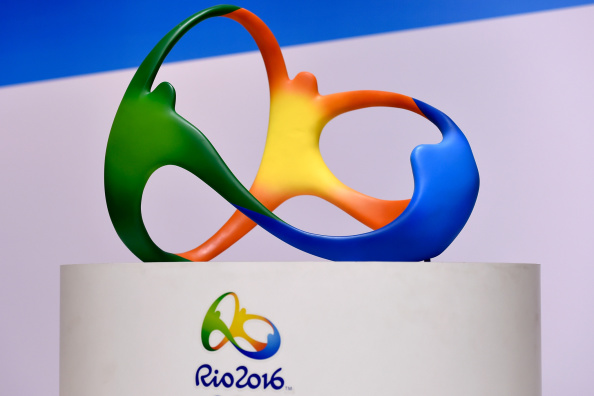The best and worst thing about Twitter is its free flow of information. Thanks to social media networks like Twitter, the world is closer together than ever before and the immediacy to which we can follow, converse, and interact with one another is extraordinary. Indeed, this can be used for good as a news source or as a way to engage in healthy dialogue. It can also be used for darker forces when abuse all too often runs rampant.
Alas, for better and for worse, Twitter especially is defined by its real-time flow of information and the ability to tweet openly and freely about whatever is on your mind.
The United States Olympic Committee objects to this.
In something that sounds too bizarre and far-fetched to be true, the USOC has been trying to intimidate companies that are non-Olympic sponsors out of using Twitter hashtags that relate to the Rio Olympics. ESPN’s Darren Rovell reported that the USOC has sent letters sending veiled threats about stealing “intellectual property” over using Twitter hashtags.
Seriously.
More details via The Guardian:
The United States Olympic Committee (USOC) has been using legal bullying tactics to try and prevent companies that aren’t official sponsors of the Games from using “official” Twitter hashtags such as #TeamUSA and #Rio2016.
Over the last few weeks, the USOC has sent letters to companies that sponsor athletes but don’t have a commercial relationship with the USOC or the International Olympic Committee, warning them against stealing intellectual property.
One of these letters, written by USOC chief marketing officer Lisa Baird and obtained by ESPN, states: “Commercial entities may not post about the Trials or Games on their corporate social media accounts. This restriction includes the use of USOC’s trademarks in hashtags such as #Rio2016 or #TeamUSA.”
The mean-spirited approach is designed to protect the cash-cow sponsors – such as Coca Cola, McDonald’s, GE, P&G, Visa and Samsung – who fork out for marketing presence at the event.
As the report later states, Twitter hashtags *can* actually be trademarked, but it should only apply in this case if non-sponsors were making a blatant and unsubtle attempt to confuse patrons of the social media platform. It doesn’t apply as a blanket way to try to get only approved accounts to use the “official” Olympic hashtags.
In fact, as one intellectual property lawyer told The Guardian, what the USOC is attempting to do goes against pretty much everything Twitter is supposed to be.
“Trademark infringement occurs when another party uses a trademark and confuses the public as to the source of a product or service that’s being used in commerce. That’s not what happens when you use a hashtag. I’m not selling a product or service, I’m just making statements on an open forum. How else do you indicate you are talking about the Rio 2016 Olympics without saying #Rio2016?”
Sports can be notoriously stingy when it comes to trying to protect their trademarks, like the NFL forcing outlets to use generic terminology like “The Big Game” instead of the “Super Bowl” in some instances. But trying to regulate who can and can’t use Twitter hashtags? That’s just ludicrous. Even more ridiculous? The USOC is trying to force companies not to report results relating to athletes they sponsor or even share or retweet posts from Olympic accounts.
Let that soak in – the United States Olympic Committee is trying to argue that Twitter users can’t retweet or share certain tweets. THAT’S THE WHOLE POINT OF TWITTER.
It’s yet another example of the absurd lengths the Olympics will go to in order to protect the sponsors who line their pockets. The laundry list of rules and regulations that define what athletes and sponsors can and can’t do is complicated enough to make the NCAA jealous by comparison. The Olympics only just modified their Rule 40 this year so athletes are now allowed to tweet about non-sponsors (they weren’t before for a specified period of time surrounding the games) just as long as they don’t use anything relating to the Olympics. According to the official Olympic rules, these ads can’t even contain words like “medal” or “victory” or “games.”
The Olympics have so many problems facing its existence – both in the short-term in Rio and in the long-term as an event that countries are now finding to be a black hole of wasteful spending – it seems like trying to regulate Twitter hashtags should be the least of their concerns.








Comments are closed.